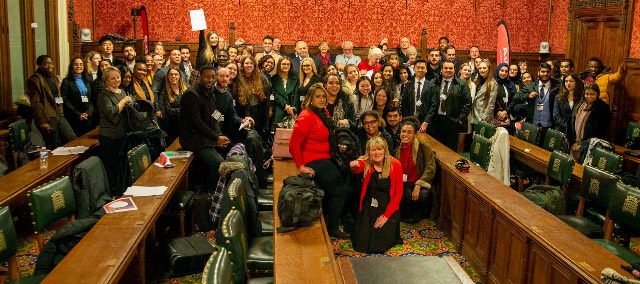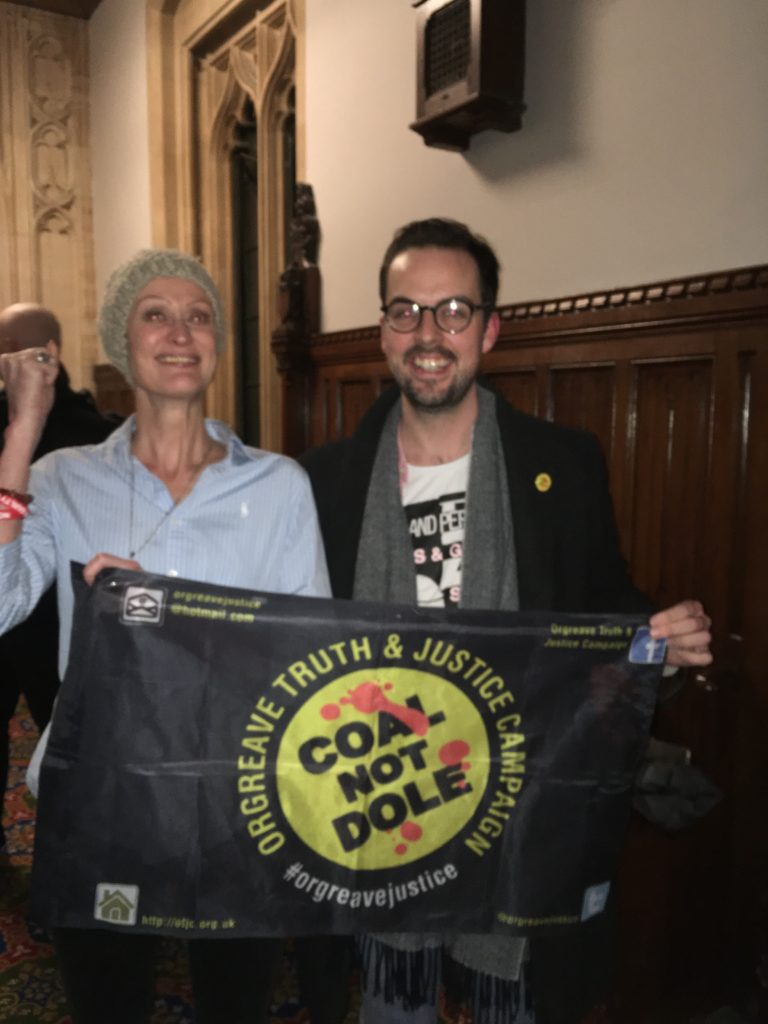Joint enterprise’ is a working class injustice – the law must change
On Tuesday 11th February, members of the Orgreave Truth and Justice Campaign were proud to attend and support a public meeting of the Joint Enterprise – Not Guilty by Association (JENGbA) campaign in the House of Commons. The joint enterprise law says that a secondary party in any offence can be prosecuted as if they were the principal offender.
Legal experts told the meeting that, until 2016, the law applied in cases where the prosecution could prove that the secondary party had ‘foresight’ of the crime. If they could show that a person connected to the main offender thought that a crime might be committed, then it was possible to build a joint enterprise case. In effect, the law allows one person to be prosecuted for somebody else’s wrongdoing.
This matters because demonstrating foresight by establishing a connection between the parties allegedly involved in a joint enterprise is often based on the flimsiest of evidence. Several panellists told the meeting that those convicted were frequently young people who come overwhelmingly from working class, BAME backgrounds. The prosecution’s cases for foresight regularly rest on anti-working class, disablist and racist assumptions of criminality – similar assumptions that were used against the 95 miners wrongly charged with riot and unlawful assembly outside the Orgreave coking plant in June, 1984, or the victims of the 1989 Hillsborough disaster.
For example, Sally Halsall, mother of an autistic child convicted of murder under joint enterprise laws, told the meeting the harrowing story of her son’s appeal case. He had been given a diagnosis of autism by the world-leading authority on the mental health condition, Professor Simon Baron-Cohen. Shockingly, she was accused by the prosecution of coaching her son through Professor Baron-Cohen’s interview.
In 2016, the law changed when the Supreme Court ruled that the application of the law had taken a “wrong turn”. The judge ruled that ‘foresight’ was an insufficient basis on which to build a joint enterprise case. But JENGbA’s campaign against working class injustice goes on. Rather than be granted an automatic right to appeal, those who were wrongly convicted actually face more hurdles to having their case reheard.
Usually, appeals must be made within 28 days or they are out of time. For the appeal application to succeed, the defendant must be able to prove that an alteration in the law or new evidence might have changed the outcome of the trial. To be reheard after 28 days, they need to pass an additional ‘substantial injustice’ test – not only does the defendant have to show that the change in law might have made a difference, but that it definitely would have altered the verdict.
Simon Natas, JENGbA’s lawyer, told the audience that this is nearly impossible to demonstrate with complete certainty, meaning that those sentenced because of their apparent “foresight” are unable even to have their appeals heard. The result is that despite the Supreme Court’s acknowledgement of a “wrong turn” in the law, potentially thousands of victims of this historic injustice still languish in prison.
At the meeting, JENGbA announced its intention to push for legislation to make it easier for those convicted on the basis of an erroneous interpretation of the law to appeal their cases and correct this miscarriage of justice.
On Wednesday 25th March, 2pm, JENGbA will march from Victoria Coach station to the House of Commons to submit a Private Members Bill. The Bill will demand changes in the law to overturn the wrongful convictions of innocent people under joint enterprise.
We encourage supporters of OTJC to offer their solidarity to the campaign and attend this important demonstration against working class injustice.


 Follow
Follow